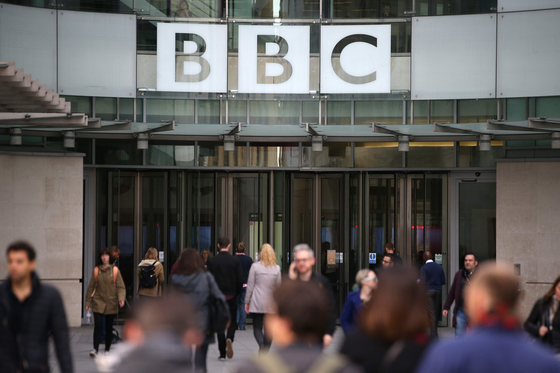The media war between China and the UK is getting closer. It was decided to withdraw the other country’s broadcasting channel for the time being.
![The BBC's headquarters in London, UK. [AFP=연합뉴스]](https://i0.wp.com/pds.joins.com/news/component/htmlphoto_mmdata/202102/12/25ca6ee7-e7cb-42dd-ae23-850b5e91df0b.jpg?w=560&ssl=1)
The BBC’s headquarters in London, UK. [AFP=연합뉴스]
According to Reuters, etc., China’s national radio and television general bureau “From 0 o’clock on the 12th, we will stop broadcasting’World News’, a TV channel specializing in BBC international news, and will not accept applications for a broadcasting license for one year.”
The Photoelectric Power Bureau reported that the BBC “reported distorted fake news related to the Xinjiang Uighur Autonomous Region and Corona 19.”“I fell into an ideological bias toward China and violated the rule of reporting truthfully and fairly,” he argued. As a result, he said, “It violated China’s national interests, hindered national integration, and hurt people’s feelings.”
Meanwhile, in China, the world news channel has only been aired in some four-star or higher hotels or foreign business residential buildings. However, with this measure, even that could not be seen. On this day, the Hong Kong public broadcaster RTHK (Radio Television Hong Kong) cut off broadcasting on the BBC due to the decision of the Optoelectronics Administration.
On the announcement of the General Bureau of Optoelectronics The BBC said, “We were disappointed with the Chinese authorities’ action.”“The BBC is the most trusted international news broadcaster, reporting news from around the world in a fair and fair manner, without fear or favor.”
![On the 10th, the speech of former trainees at the Xinjiang Vocational Education and Training Institute held at the Ministry of Foreign Affairs Building in Beijing, China. On the same day, a Chinese official from Xinjiang criticized the BBC's reports of rape at Uighur camps. [AP=연합뉴스]](https://i0.wp.com/pds.joins.com/news/component/htmlphoto_mmdata/202102/12/578037b0-f0ed-44fe-a72f-dcff078ef5ca.jpg?w=560&ssl=1)
On the 10th, the speech of former trainees at the Xinjiang Vocational Education and Training Institute held at the Ministry of Foreign Affairs Building in Beijing, China. On the same day, a Chinese official from Xinjiang criticized the BBC’s reports of rape at Uighur camps. [AP=연합뉴스]
China and the UK have been in conflict over the enactment of the Hong Kong National Security Law last year. Then The conflict has deepened as the BBC recently raised suspicions of rape in Xinjiang’s Uighur Autonomous Region camp.
At the time, the BBC reported that routine sexual assault and torture took place in the field based on the testimony of women imprisoned in Uyghur camps. In response, the Chinese Ministry of Foreign Affairs rebelled, saying, “Stop deliberately damaging China’s image,” saying it was a groundless report.
It also objected to the BBC report that doctors in Wuhan, Hubei Province, were unable to inform the severity of Corona 19 in time due to pressure from the Chinese authorities.
![Headquarters of CCTV and English broadcasting channel CGTN in Beijing, China. [로이터=연합뉴스]](https://i0.wp.com/pds.joins.com/news/component/htmlphoto_mmdata/202102/12/9cd578cf-36a0-4800-b07a-d40a2e8e315e.jpg?w=560&ssl=1)
Headquarters of CCTV and English broadcasting channel CGTN in Beijing, China. [로이터=연합뉴스]
In this regard On the 4th, ofcom, the UK’s broadcasting and communications regulator, revoked the broadcasting license of CGTN, an English broadcaster of Chinese state CCTV. The reason was that it violated British broadcasting laws by sending out broadcasts without independent editorial rights under the command of the Communist Party. Then, China set fire to ban broadcasting the BBC World News channel.
Accordingly, China’s state-run Global Times reported, “The BBC, which has been turned into a’rumor factory’, has deliberately inflicted a blow on the image of China.”
Professor Li Haidong (李海東) of the Institute of Foreign Affairs also pointed out, “The BBC has been reporting the issue of Hong Kong, Taiwan and Xinjiang distortedly.” He also predicted that the Chinese government could take further retaliation, including expelling BBC reporters.
Reporter Lee Min-jung [email protected]
